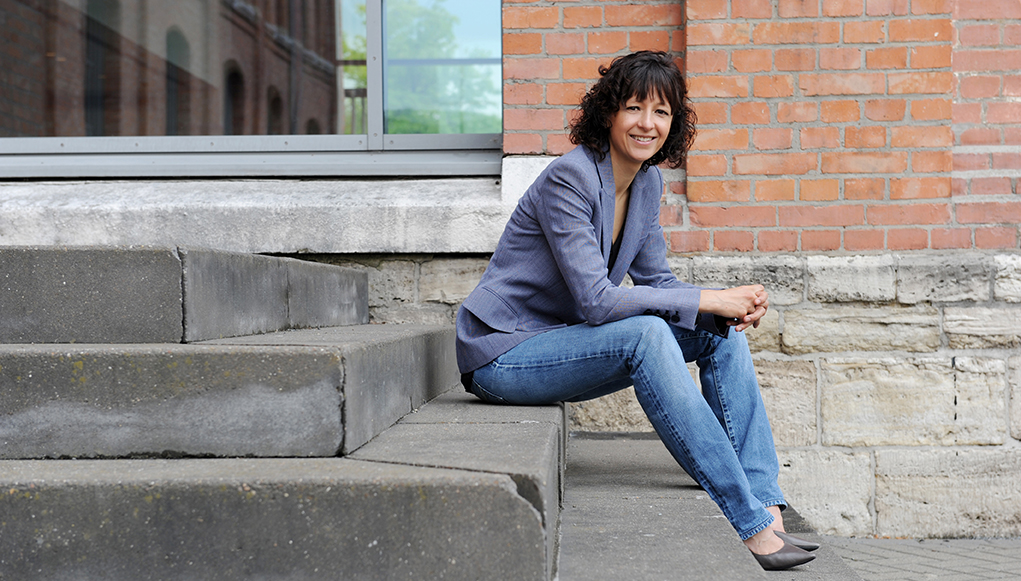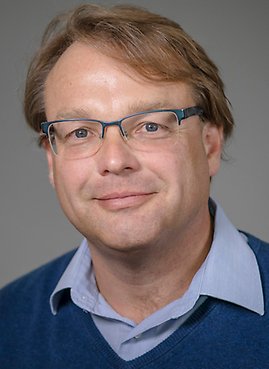News
News
PublISHED ON
UpDATED ON
Funding without focus requirement led to ground-breaking research
By offering funding for up to nine years, MIMS could recruit promising researchers from across the world – Emmanuelle Charpentier’s discovery shows that the strategy was successful.

Emmanuelle Charpentier. Foto: Hallbauer&Fioretti
One of the people celebrated today in the digital ceremony that replaces the Nobel Prize ceremony is Emmanuelle Charpentier. Together with Jennifer A. Doudna, she is this year’s winner of the Nobel Prize in Chemistry. Their discoveries of the genetic scissors CRISPR/Cas9 have revolutionised molecular life sciences by making it possible to change the genome of animals, plants and micro-organisms.
When Emmanuelle Charpentier, who is today a professor, scientific leader and head of the Max Planck Unit for the Science of Pathogens in Berlin, made her ground-breaking discoveries, she was working at the MIMS laboratory at Umeå University. She was one of the first team leaders the laboratory recruited in 2008.

Oliver Billker. Foto: Mattias Petterson
Oliver Billker, who is a professor at the Department of Molecular Biology at Umeå University and the current head of MIMS, describes how the funding from the Swedish Research Council opened a new door to recruiting researchers.
“By offering grants lasting up to nine years, we can attract the most promising researchers from anywhere in the world to apply. Here, they have the opportunity to build up a high-quality research environment and the freedom to tackle big and important questions.”
“Emmanuelle Charpentier’s discovery shows that this plan succeeded,” says Oliver Billker.
“When she started her laboratory at MIMS, her potential as a scientist was apparent, but the enormous significance that her ongoing research would quickly develop could not have been predicted.”
MIMS still receives funding from the Swedish Research Council. Oliver Billker underlines the importance of grants without a required focus, how this stimulates creative and curiosity-driven research.
“Many of the best scientists are motivated by their curiosity. Their research often leads to profound discoveries, the importance of which was not predictable. The discovery of CRISPR/Cas9 is a great example. The recent successes in vaccine development demonstrate that science can deliver products at great speed. However, this only works because of the enormous body of knowledge generated by previous curiosity-driven research.”
MIMS
Emmanuelle Charpentier worked at MIMS, the Laboratory for Molecular Infection Medicine Sweden, at Umeå University with funding from the Swedish Research Council during 2008–2013. MIMS is one of the nodes in the Nordic network operated by the European Molecular Biology Laboratory, EMBL.
This year’s Nobel Prizes are given out in the prize winners’ home countries. On Monday 7 December, Emmanuelle Charpentier received her diploma and medal at the Swedish Embassy in Berlin.
On Tuesday 8 December, she and Jennifer A. Doudna gave their Nobel lectures External link..
External link..
On 10 December, all Nobel Prize winners are celebrated simultaneously at a digital ceremony broadcast External link. from Stockholm City Hall.
External link. from Stockholm City Hall.
MORE WITHIN THE SAME SUBJECT AREA
-
Article |
Published 19 April 2024
Forskning.se publishes news about research from Swedish universities, research institutes, and research organisations. The Swedish Research Council coordinates the development of forskning.se, and the editorial team is based at our offices.
-
News |
Published 15 April 2024
The Swedish Research Council and Vinnova have signed a five year declaration of intent with the US National Science Foundation (NSF), which will facilitate research and innovation collaborations between Sweden and USA.
-
News |
Published 9 April 2024
More dialogue is needed between the research community and decision-makers to ensure decisions made are based on scientific knowledge. A new report from Science Europe has proposals for how this dialogue can be improved.



